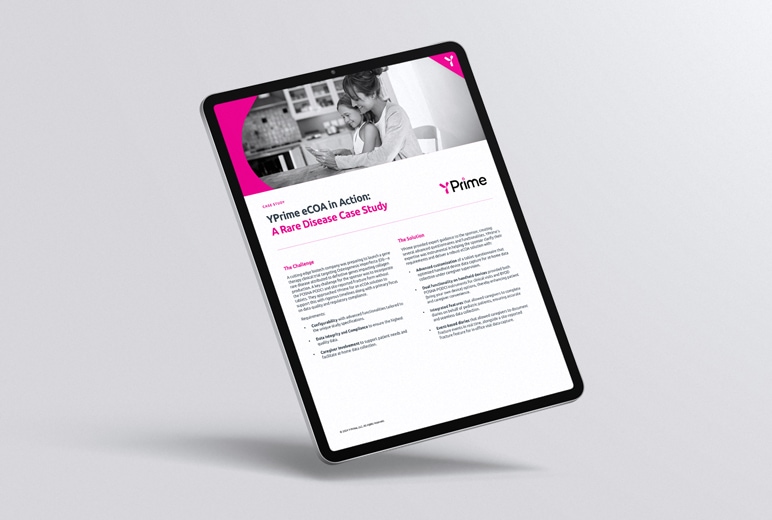Are your global clinical trials being held back by misunderstandings about translation and licensing? Clinical trial translation and eCOA instrument licensing are key to successful study outcomes. But what do these terms mean, and why are they so important? Simply put, clinical trial translation is the process of converting study materials into different languages to enable global participation, while electronic Clinical Outcome Assessment (eCOA) instrument licensing involves securing legal permission to use copyrighted assessment tools in your research. As trials expand globally and patient diversity becomes increasingly important, getting these foundational elements right is critical to staying on time and within budget.
Despite their importance, misconceptions about translation and licensing occur too often. These myths can lead to unexpected delays, cost overruns, and compliance issues. The complexities of copyright requirements, varied translation needs, and evolving regulatory expectations make it crucial for clinical teams to separate fact from fiction.
This blog addresses the five most common myths surrounding clinical trial translation and eCOA instrument licensing, providing practical insights to help study teams navigate these challenges effectively. Understanding the realities behind these misconceptions can make the difference between a smooth study startup and costly setbacks.
Myth #1: “We don’t need a license for this study because we’ve used this instrument before.”
This seemingly logical assumption confuses even experienced clinical trial teams. While you may have previously licensed a questionnaire for another study, most copyrighted instruments require study-specific documentation—even for repeat users. This documentation ranges from simple notification forms to new contracts and payments.
The licensing landscape isn’t standardized, which adds to the confusion. Some copyright holders may only require a “top-up” payment for changes, while others mandate a new license for each study. This makes it crucial to confirm requirements early rather than making assumptions based on past experiences.
One sponsor came to YPrime after they discovered, just weeks before their study was about to start, that their previously used questionnaire required a new license—with a 12-week processing time. The resulting delay cost them valuable time and required last-minute protocol adjustments.
Best practice? Reach out to copyright holders or your licensing partner as soon as you’ve narrowed down your instrument selection. This proactive approach ensures you have accurate timelines and budget forecasts, preventing surprises down the road.
Myth #2: “Working with copyright holders is always straightforward.”
Many clinical teams approach eCOA instrument licensing like any other vendor relationship—expecting standardized processes, quick responses, and uniform expertise across all copyright holders. The reality is far more nuanced.
Copyright holders can range from dedicated licensing departments in large organizations to part-time administrators at academic institutions. This diversity directly impacts how smoothly (or not) the licensing process will go:
Myth #3: “We can’t start licensing until we have a final protocol.”
If there’s one message to take away from this discussion, it’s this: Starting early with licensing discussions isn’t just helpful—it’s essential to keep your studies on track. Many teams wait for a final protocol before beginning licensing conversations, but this approach can backfire in multiple ways. With early licensing discussions, you can:
At YPrime, a clinical trial sponsor came to us with a global Phase 3 trial. We advised them to begin licensing discussions early during protocol development. By doing so, they discovered that one of their planned instruments had limited translations available. With YPrime’s support, we helped them adjust their country selection strategy and built realistic translation timelines into their study plan.
Myths #4 and #5: Clinical Trial Translation and eCOA Instrument Licensing Misconceptions
Two related myths often go hand-in-hand: “We don’t need a translation company because the instruments are already translated” and “Our eCOA vendor’s instrument library eliminates the need for translation work.”
While instrument libraries are a valuable resource, they don’t eliminate translation needs. Here’s why:
A sponsor came to YPrime after encountering these challenges in a recent pediatric study. The team assumed that using a questionnaire from their eCOA vendor’s library would streamline the process. However, when they needed to modify response options slightly to better suit their young patient population, they discovered that each change required careful linguistic consideration across 14 languages.
Real Solutions for Real Challenges
These myths aren’t just theoretical—they impact real studies every day. Consider this “marshmallow” dilemma: A clinical trial sponsor faced an unusual challenge when an Android limitation transformed a crucial data point (a smiley face icon) into a marshmallow emoji. Thanks to strong copyright holder relationships and translation expertise, YPrime quickly implemented a solution without impacting study timelines. You can read the full case study here.
Moving Forward Successfully
Understanding the realities behind these myths is your first step toward streamlined, more efficient clinical trials. Here’s your action plan:
- Start licensing discussions early during protocol development—not after
- Budget adequate time for clinical trial translation work
- Partner with specialized translation and licensing experts who understand the nuances
- Recognize that instrument libraries, while valuable, don’t eliminate the need for translation expertise
- Build and maintain strong relationships with copyright holders for smoother problem-solving
By approaching clinical trial translation and eCOA instrument licensing with clear eyes and realistic expectations, you can avoid common pitfalls and set your studies up for success from the start.
At YPrime, our AI-powered Migration Tool streamlines the localization process, empowering sponsors to launch studies faster and with greater precision across multiple regions and languages—setting a new standard for global eCOA workflow. Whether you’re managing a complex multi-regional study, transitioning from paper to electronic data capture, or looking to standardize your data collection processes, YPrime’s flexible platform ensures seamless migrations while maintaining the highest standards of data integrity. Email marketing@yprime.com to learn more or check out our beginner’s checklist for all things clinical trial translation and eCOA instrument licensing.
Check Out Our Other eCOA Resources
about trial design, data capture, operational efficiencies, and, ultimately, solving for certainty in clinical research.



